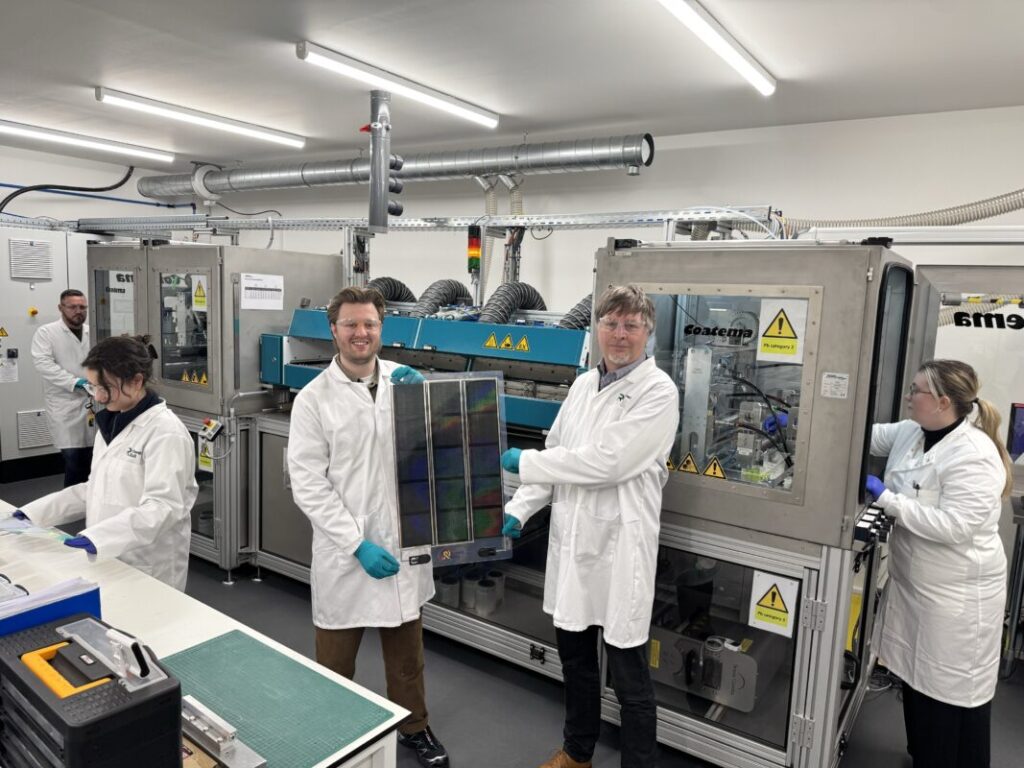
Flexible solar manufacturer Power Roll and scientists from the University of Sheffield have published a new paper highlighting the potential of thin-film solar cells using perovskites.
The paper, published in the journal ACS Applied Energy Materials, details the fabrication techniques of Power Roll’s proprietary thin-film solar technology, where 1.5μm grooves are embossed into plastic film, and the need for rare earth metals is eliminated.
The researchers made use of a new type of x-ray microscopy, developed at Diamond Light Source in Oxfordshire, to take extremely detailed pictures of the solar cells while also helping to point out hidden problems like empty spaces, flaws in the material, and problems with the boundaries between tiny crystals within the semiconductor material in order to find ways to improve them.
According to Power Roll, this is the first time this kind of analysis has been carried out on this type of solar cell. Further imaging was also carried out at the National Physical Laboratory (NPL), where tests also evaluated the special performance of the cells.
The paper notes that the cells can deliver a stabilised efficiency of up to 12.8%, although it notes that further research and manufacturing improvements could boost this. The paper concludes: “We believe this demonstration of flexible back-contact perovskite solar cell modules manufactured by fully scalable processes that only contain low-cost Earth-abundant materials represents a very promising step toward the commercialisation of this technology.”
Dr Nathan Hill, senior scientist at Power Roll who led the paper, said: “This partnership demonstrates the potential of combining cutting-edge research with industrial innovation to deliver transformative solutions in renewable energy. We are advancing technology that could play a significant role in achieving global net-zero targets, and by combining our collective research and academic capabilities, we are able to further prove the science sitting behind Power Roll’s technology.”
Professor David Lidzey, from the School of Mathematical and Physical Sciences at the University of Sheffield and co-author of the paper, said: “Solar energy is a strategic priority for our research, and one of our key competencies is developing innovative techniques for fabricating and depositing solutions processable solar cells.
“We’ve partnered with Power Roll for over ten years, combining our expertise in materials science and advanced imaging techniques with their focus on manufacturing. Together, we’ve gained a deep understanding of how their solar cells work, identifying key areas for improvement.”
An interview with Power Roll CEO Neil Spann is available to read here.

